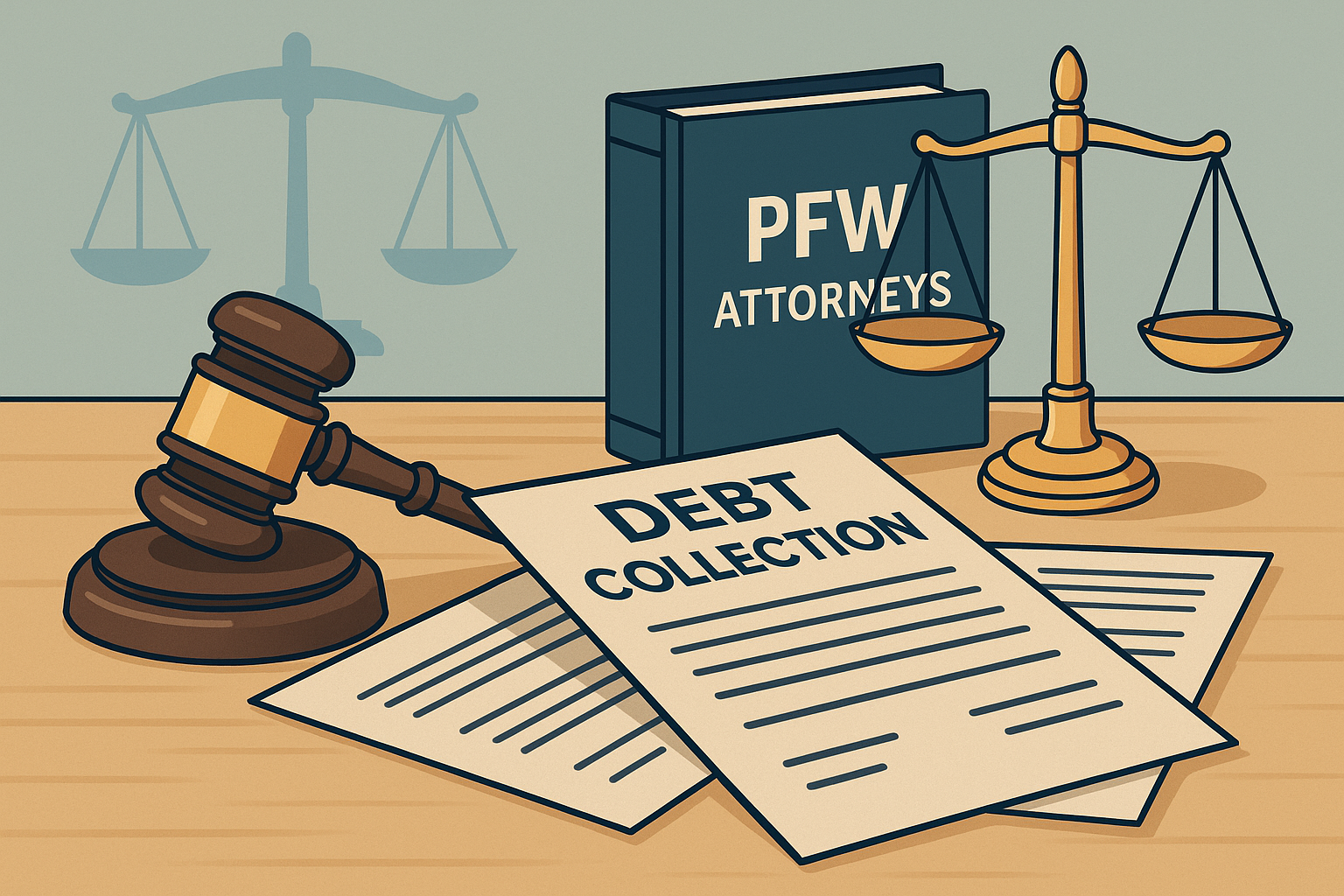Introduction
Pressler, Felt & Warshaw LLP (sometimes styled Pressler, Felt & Warshaw LLP, pressler felt & warshaw llp or PFW Attorneys) is a debt‑collection law firm based in Parsippany, New Jersey. The firm, formerly known as Pressler & Pressler LLP, represents creditors and debt buyers in collecting unpaid consumer debts. When the firm contacts a borrower—whether by letter, phone call or lawsuit—it is acting on behalf of its clients and is usually seeking to collect a consumer debt. Because PFW Attorneys is a law firm, it typically files lawsuits to obtain judgments and wage‑garnishment orders rather than simply chasing debtors for payment.
Background and history
The practice’s origins can be traced to Pressler & Pressler, a high‑volume debt‑collection firm founded in New Jersey in the twentieth century. In March 2018 the firm rebranded as Pressler, Felt & Warshaw LLP when partners Gerard Felt and David Warshaw joined the name. According to Upsolve’s consumer guide, the company “was formerly called Pressler and Pressler LLP and is located in Parsippany, New Jersey”. From its offices at 7 Entin Road, Parsippany, PFW Attorneys now operates across New Jersey, New York, Pennsylvania and other states, representing banks, medical providers, credit‑card issuers and other creditors.
Services and operations
PFW Attorneys focuses exclusively on creditors’ rights. Unlike third‑party collection agencies that purchase delinquent accounts, the firm collects debts on behalf of its clients. Because it is a law firm, its primary collection tool is litigation—filing suits in state courts to secure judgments and garnish wages. Its operations include:
- Pre‑litigation collection – sending demand letters and negotiating payment plans.
- Litigation – filing debt‑collection lawsuits to obtain judgments. The firm often reaches out to consumers via summons and complaint.
- Garnishment and enforcement – once a judgment is obtained, PFW Attorneys can pursue wage or bank‑account garnishment.
- Client portals and security – the firm’s website highlights a client portal and states that it practices high levels of security for client and consumer data.
Legitimacy and regulatory scrutiny
PFW Attorneys is a real, licensed law firm. However, its earlier incarnation—Pressler & Pressler—drew regulatory scrutiny. In 2016 the Consumer Financial Protection Bureau (CFPB) entered into a consent order with Pressler & Pressler, its partners and debt buyer New Century Financial Services. The CFPB found that the firm filed large numbers of debt‑collection lawsuits based on flimsy or nonexistent evidence and ordered it to stop filing suits without verifying the debts. The consent order also required the firm and the named partners to pay $1 million in civil penalties. This enforcement action signaled regulators’ concerns about high‑volume “lawsuit mills.”
Complaints continue in the years since the rebranding. Upsolve notes that consumers commonly complain that Pressler, Felt & Warshaw is difficult to contact, may try to collect debts that aren’t owed and sometimes threatens illegal action. The Better Business Bureau (BBB) has logged more than 90 consumer complaints against the firm in the past three years, and more than 700 complaints have been filed about its predecessor Pressler & Pressler LLP in the CFPB’s complaint database.
How to deal with Pressler, Felt & Warshaw LLP
If you receive communication from pressler felt & warshaw or PFW Attorneys, you have rights under federal and state law. Upsolve’s 2025 guidance suggests several steps consumers should take:
- Validate the debt – Third‑party debt collectors must send a debt validation letter within five days of first contacting you. If they don’t, you can send a debt verification letter requesting proof that the debt is yours and that PFW Attorneys is authorized to collect it. Debt collectors must pause collection efforts until they validate disputed debts.
- Assess your options – Once the debt is validated, decide whether to dispute it, negotiate a settlement or pay it. Many debt collectors will settle for 40‑60 % of the original balance, but you should only offer what you can afford.
- Negotiate strategically – When negotiating, start with an offer lower than what you can pay and request that any settlement be reported to credit bureaus as “paid in full,” which is better for your credit score.
- Respond to lawsuits – If PFW Attorneys sues you, respond to the summons and complaint and show up to court hearings. Litigation gives the firm leverage but also increases its costs, so it may be more willing to settle.
- Know your rights – The Fair Debt Collection Practices Act (FDCPA) prohibits collectors from harassing, threatening or misleading consumers. If PFW Attorneys violates your rights, you can file a complaint with the CFPB or seek help from a consumer‑rights attorney.
Consumer rights and tips
- Check for scams – Scammers sometimes impersonate legitimate firms like pressler felt and warshaw to extract payment. Validate the debt and check contact information to ensure you’re dealing with the actual law firm.
- Document everything – Keep copies of letters, court documents and negotiation emails.
- Consult a professional – A consumer‑rights attorney or nonprofit credit counselor can advise you on responding to lawsuits and negotiating settlements.
Conclusion
Pressler, Felt & Warshaw LLP (PFW Attorneys) plays a significant role in the U.S. debt‑collection landscape. The firm, previously known as Pressler & Pressler LLP, represents creditors in recovering unpaid consumer debts. While legitimate, PFW has faced regulatory actions for filing unsubstantiated lawsuits, and hundreds of consumer complaints allege aggressive or unfair tactics. If you’re contacted by PFW Attorneys, verify the debt, understand your legal rights and consider negotiating a settlement. For more information, refer to consumer guides from Upsolve (updated in 2025) and official resources like the CFPB’s debt collection rules. Visit website for more topics.





